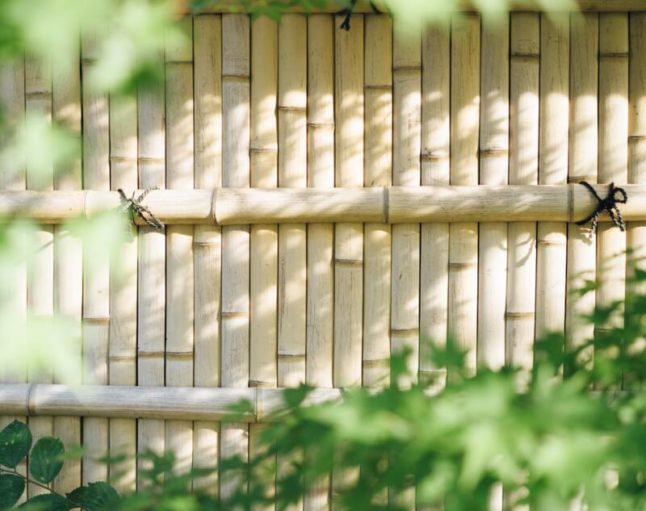All Categories
Featured

Picking the ideal secure fencing material for your residential property is a choice that balances visual appeals, performance, and budget. Amongst one of the most prominent alternatives, wood, vinyl, and aluminum each deal unique benefits and drawbacks. Comprehending these can aid you make an informed selection that aligns with your requirements. Here's a malfunction of the advantages and disadvantages of these 3 common fence materials.
Wood Fencing. Wood secure fencing has actually been an ageless choice for house owners due to its all-natural elegance and versatility.
Pros:. Visual Charm: Timber offers a classic and cozy look that complements a range of architectural styles. Personalized: It can be painted, tarnished, or cut right into one-of-a-kind designs to fit individual preferences. Cost-Effective: Originally, timber fencing can be a budget-friendly option contrasted to other products. Eco-Friendly: Timber is a renewable energy and can be sustainably sourced. Cons:. High Maintenance: Wood requires normal securing, discoloration, or paint to stop rot, insect damages, and weathering. Longevity Problems: Without correct care, wood can warp, split, or decay with time, specifically in locations with high moisture. Shorter Life expectancy: A wood fence generally lasts 10-20 years, depending on the sort of wood and level of upkeep. Wood is perfect for those who value a standard look and want to dedicate to its maintenance.
Vinyl Fencing. Vinyl is a contemporary, low-maintenance fence alternative that has grown in appeal recently.

Pros:. Reduced Upkeep: Plastic does not require paint, staining, or securing and can be quickly cleansed with soap and water. Weather Resistant: It stands up to extreme weather without deteriorating, rusting, or bending. Lasting: Vinyl fencings can last 20-30 years with minimal maintenance. Variety of Styles: Offered in lots of colors, styles, and appearances, some vinyl alternatives resemble the look of timber. Cons:. Higher Upfront Price: Plastic fencing can be extra costly originally compared to timber. Brittleness in Cold Weather condition: In severe cool, vinyl might fracture or come to be brittle. Limited Repair works: Individual panels can be difficult to replace, calling for cautious matching to the existing fencing. Vinyl is ideal matched for property owners seeking a sturdy, low-maintenance service with contemporary aesthetics.
Light Weight Aluminum Fence. Aluminum secure fencing is a lightweight and durable choice, frequently picked for its modern-day look and flexibility.
Pros:. Rust-Resistant: Aluminum doesn't corrosion, making it an exceptional choice for moist or damp climates. Reduced Maintenance: Requires minimal maintenance and is simple to tidy. Resilient: While lightweight, aluminum is solid enough to endure numerous environmental problems. Lengthy Lifespan: Can last numerous years without considerable wear or deterioration. Selection of Styles: Offers a classy and sleek look, usually made use of for ornamental or ornamental functions. Cons:. Higher Expense: The first financial investment for aluminum fencing is greater than timber or vinyl. Much Less Privacy: Aluminum fencings are frequently made with open pickets, making them less effective for personal privacy. At risk to Dents: Although long lasting, aluminum can be nicked by strong impacts. Light weight aluminum is ideal for those seeking a fashionable, long-lasting alternative that calls for minimal care.
Making the Right Option. Each fence material-- aluminum, vinyl, and wood-- uses distinctive benefits and negative aspects. Your choice ought to depend upon your specific priorities, such as budget, maintenance preferences, environment, and visual objectives:
If you like a traditional look and don't mind normal upkeep,Select timber. Go with plastic if you desire a low-maintenance, weather-resistant fence with modern-day allure. Select aluminum if you focus on toughness, corrosion resistance, and a smooth style. By weighing these pros and cons, you can choose a fence product that enhances your residential or commercial property while fulfilling your useful requirements.
Latest Posts
Very Little Effort, Maximum Sparkle: The Bath Fitter Advantage
Published Apr 21, 25
1 min read
Decorative Iron Fence: Sophistication and Stamina
Published Apr 21, 25
2 min read
Specials & Discounts: Unlock Discounts on Vehicle Maintenance at Montclare Auto Repair
Published Apr 21, 25
2 min read
More
Latest Posts
Very Little Effort, Maximum Sparkle: The Bath Fitter Advantage
Published Apr 21, 25
1 min read
Decorative Iron Fence: Sophistication and Stamina
Published Apr 21, 25
2 min read
Specials & Discounts: Unlock Discounts on Vehicle Maintenance at Montclare Auto Repair
Published Apr 21, 25
2 min read